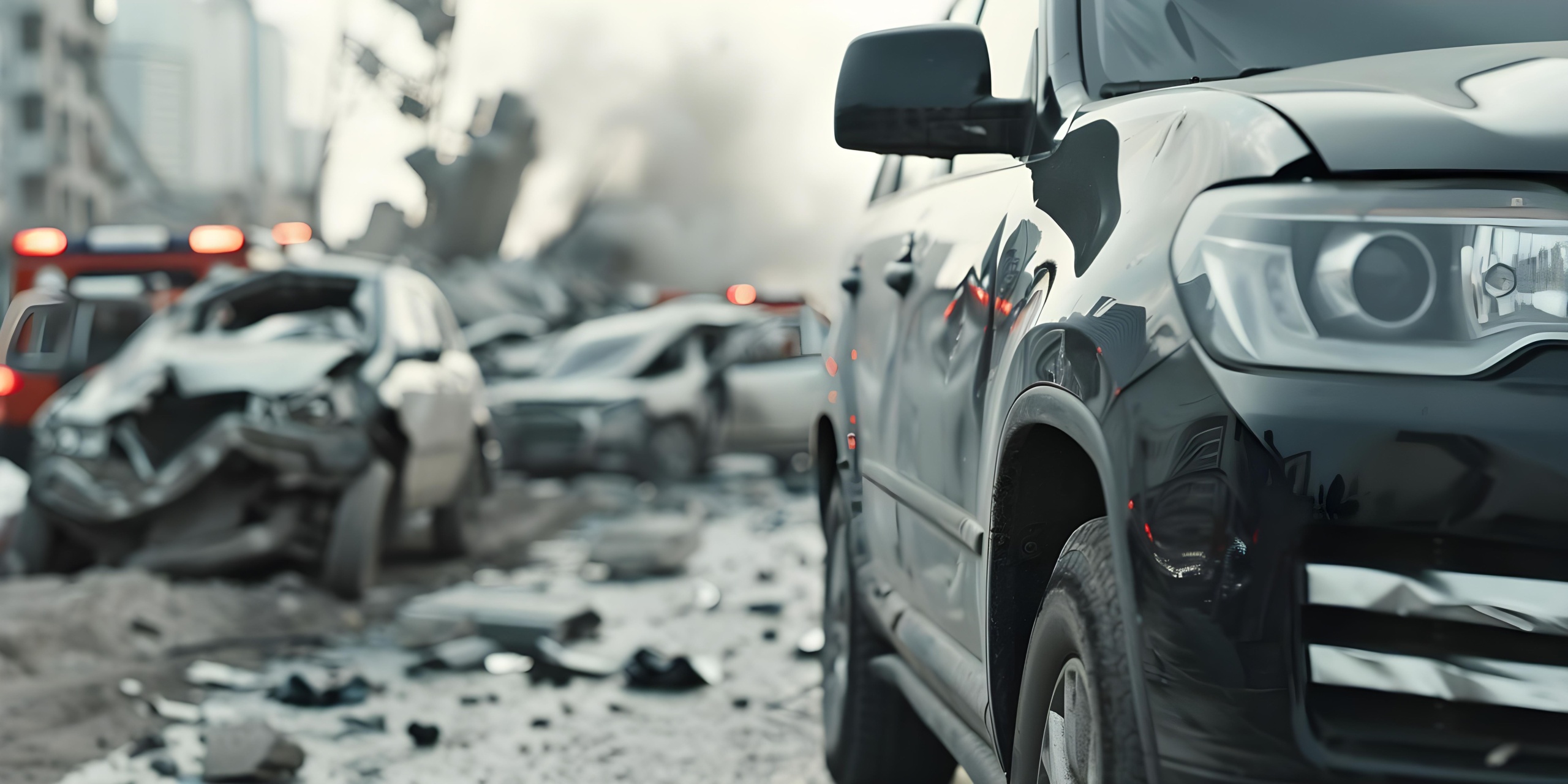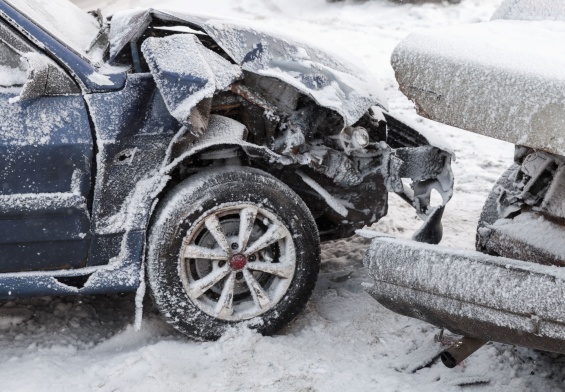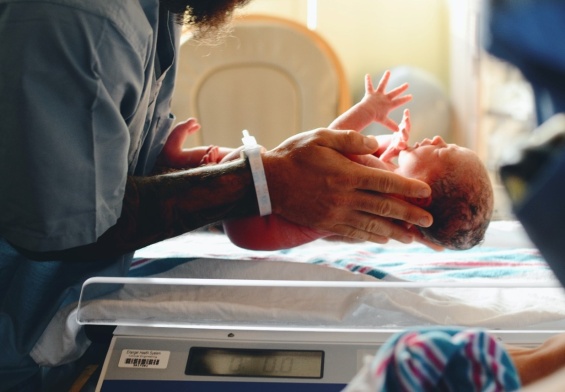If you’ve been injured in a car accident, the evidence you gather, or don’t gather, can make or break your case. Even the most skilled NJ car accident attorney needs tangible, well-documented proof to build your claim.
NJ has a comparative negligence system, which means every successful car accident claim is built on the right evidence, but only when it’s properly preserved and presented. Every detail is important, from photos of the accident to eyewitness accounts.
Let’s break down the most important types of evidence and explain how your attorney uses them to fight for your rights.
Why Is Evidence So Important in NJ Car Accident Cases?
In New Jersey, car accident claims are influenced by the state’s comparative negligence laws, which means each party’s level of fault affects the outcome of a case. If the court finds you partially responsible for an accident, your compensation may be reduced.
Definition: NJ Comparative Negligence Laws
New Jersey follows a “modified comparative negligence” rule. That means injured parties can sue for damages as long as they aren’t more the 50% at fault. But, their percentage of fault reduces their compensation.
That’s why you need to present strong evidence. Your attorney must prove the other party bears most, if not all, of the responsibility for the collision. Evidence supports your version of events, establishes damages, and rebuts any claims that you were at fault.
Even the most valid claims can be denied or minimized without solid evidence.
What Are the Most Important Types of Evidence in a Car Accident Claim?
To present a compelling case, your NJ car accident attorney will often rely on several forms of evidence, including:
- Photos and videos of the crash scene
- Eyewitness statements from people who saw what happened
- Police accident reports filed at the scene
- Medical records detailing your injuries and treatment
- Black box data from the vehicles involved
- Surveillance footage from nearby businesses or traffic cameras
- Personal documentation like notes or audio recordings
- Repair estimates and property damage records
Each of these plays a unique role in proving fault and damages. The more thorough your car accident claim documentation, the stronger your case.
How Do Photos and Videos Strengthen Your Claim?
Photos and videos paint a more complete picture of the accident than words alone. They capture:
- The positioning of vehicles after the crash
- Skid marks or debris patterns on the road
- Vehicle damage and injuries
- Traffic signals, weather, and lighting conditions
Videos can also capture the moments leading up to and following the collision. They help reconstruct the sequence of events. That potentially includes the other driver’s reckless or negligent behavior.
Your New Jersey car accident lawyer can use these visuals to support your version of what happened.
What Role Do Witness Statements Play?
Eyewitnesses offer valuable third-party perspectives that can confirm key facts. These may include:
- Passengers in your vehicle
- Pedestrians or cyclists nearby
- Drivers in adjacent lanes or at stop signs
- Store employees or bystanders
Gather statements as soon as possible to avoid memory loss or conflicting accounts. A solid witness statement can verify details like speed, right-of-way, and signal usage. That’s incredibly useful, especially when the other driver disputes your claim.
Your attorney may request these individuals testify or provide written affidavits to strengthen your case.
Why Are Police Reports Valuable in NJ Injury Claims?
A police report serves as an official, unbiased record of the crash. Officers usually include:
- The date, time, and location of the accident
- Names and insurance details of those involved
- Statements from drivers and witnesses
- The officer’s observations and, sometimes, opinions on fault
- Any citations issued
NJ car accident attorneys often build their strategies around these reports. If the police cited the other driver or noted careless behavior, it can be a major advantage.
Requesting a copy of the report from the responding department is one of the first steps in gathering evidence after crash.
What Kind of Medical Documentation Should You Keep?
Medical records serve two purposes. They prove that you were injured and show how severe those injuries are. Be sure to save:
- Emergency room intake and discharge papers
- Physician reports and treatment plans
- Diagnostic images (X-rays, MRIs, CT scans)
- Physical therapy records
- Receipts for prescriptions, medical equipment, and copays
- Mental health evaluations related to trauma or anxiety
These records help your NJ car accident attorney quantify damages. They’ll take your pain and suffering, long-term care needs, and financial losses into account. Seek medical care right away and follow all recommended treatments.
Can Your Car’s Black Box Help Prove Fault?
Yes, your vehicle may hold critical electronic data that supports your case. Modern cars often come with event data recorders (EDRs), also known as black boxes.
Definition: Black Box Data
A vehicle’s black box or Event Data Recorder (EDR) is an electronic device that records critical information about a vehicle’s operation in the seconds before, during, and after a crash. The metrics they track include speed, acceleration, braking patterns, and safety system deployment.
These devices log:
- Speed at the time of the crash
- Braking patterns
- Seatbelt usage
- Airbag deployment timing
- Sudden acceleration or deceleration
This objective data can confirm or disprove key facts. For example, it might show that you were driving at a legal speed while the other driver was not.
Your attorney can work with accident reconstruction specialists to interpret this data and use it to reinforce your narrative.
What Other Supporting Documents Can Help?
While the main sources of evidence tend to be medical records, photos, and reports, don’t overlook other documents that show the financial and personal toll of the accident:
- Auto body repair estimates
- Rental car receipts
- Pay stubs or HR letters documenting missed work
- Notes from mental health providers about post-accident anxiety or PTSD
- Towing invoices or roadside service records
These records help show the full extent of your losses, which is a big help when negotiating a settlement or presenting a claim in court.
How Do You Preserve Evidence Right After a Crash?
If you’re able, take the following steps as soon as the accident occurs:
- Call 911 and request medical and police help
- Take photos and videos before moving the vehicles
- Exchange information with all involved parties
- Get contact info from witnesses and ask for statements
- Request the police report number from the responding officer
- Seek medical treatment even if injuries seem minor
- Write down everything you remember or record audio notes
- Contact an NJ car accident attorney to start protecting your rights
Time-sensitive evidence like skid marks, surveillance footage, and eyewitness accounts can disappear quickly. That’s why you need to act fast.
Evidence Preservation Timelines: When to Act
Different types of evidence have different preservation windows. Understanding these timeframes helps your build a strong case:
Immediate (Within 24 Hours)
- Accident scene photos and videos (before weather or traffic alters the scene)
- Witness contact information and statements
- Police report filing
- Medical evaluation and documentation of injuries
Short-Term (1-7 Days)
- Request traffic or security camera footage (often deleted within days)
- Document vehicle damage with detailed photos
- Begin medical treatment documentation
- Contact your insurance company
- Consult with a New Jersey car accident lawyer
Medium-Term (1-4 Weeks)
- Get the official police report
- Secure black box data from vehicles
- Request cell phone records that might show distracted driving
- Document ongoing medical treatment and recovery progress
Long-Term (1-12 Months)
- Continue gathering medical records showing long-term implications
- Document income loss and inability to work
- Keep records of all accident-related expenses
- Maintain a pain and recovery journal
Acting within these timeframes preserves crucial evidence before it disappears. That gives you a stronger position under NJ comparative negligence laws.
How Can an NJ Car Accident Attorney Help Gather and Protect Evidence?
A qualified attorney doesn’t just review your photos. They actively build your case by:
- Sending preservation letters to businesses or transit authorities requesting video footage
- Working with private investigators to revisit the scene
- Consulting with medical experts to establish long-term treatment needs
- Subpoenaing phone records, black box data, or business logs
- Preparing you for depositions or court appearances with full documentation
Most importantly, they communicate with insurance companies, protecting you from pressure tactics or lowball offers.
NJ Car Accident Evidence FAQs
What if I didn’t take photos at the scene?
Your attorney can still get evidence from police, nearby cameras, or by revisiting the scene to document road conditions and signage.
Can I still file a claim without witnesses?
Yes, witness statements help, but other forms of evidence can still make a strong case.
How long do I have to file a car accident lawsuit in NJ?
The statute of limitations for personal injury claims in New Jersey is two years from the date of the accident. But, the faster you act, the higher your chances of success.
How does New Jersey’s no-fault insurance affect my evidence needs?
In NJ’s no-fault system, you’ll need evidence of fault but also that your injuries meet the “serious injury” threshold to step outside the no-fault system for extra compensation.
Build a Strong Case from the Start
Winning a car accident case in New Jersey isn’t just about what happened. It’s about what you can prove. By working with a knowledgeable NJ car accident attorney and gathering the right evidence early, you maximize your chances of securing the compensation you deserve.
Don’t leave your future up to chance. If you’ve been in a crash, talk to a New Jersey car accident lawyer today. They’ll help preserve critical evidence and advocate for your recovery from day one.




